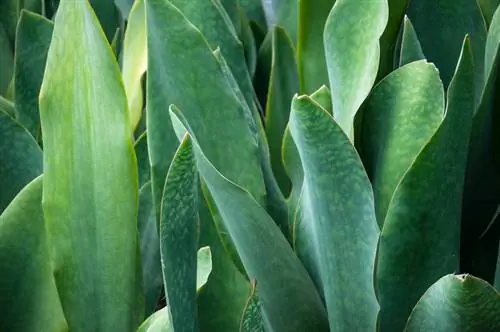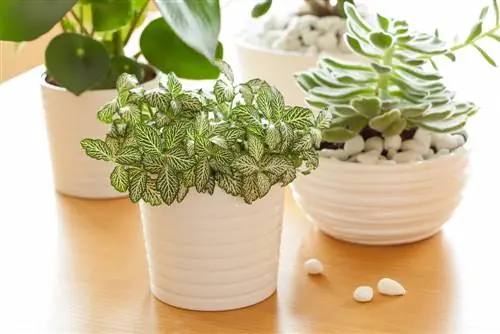- Author admin leonars@hobbygardeners.com.
- Public 2023-12-16 16:46.
- Last modified 2025-01-23 11:20.
If you have pets or small children, then choosing a houseplant is a somewhat tricky matter. Many green plants are more or less poisonous, but only a few pose a serious threat to the life of your family.

Is the rubber tree poisonous to children?
The rubber tree is slightly poisonous and can cause gastrointestinal upset, nausea, vomiting or diarrhea in children. Skin irritation or allergic reactions may occur upon contact with the milk-like plant sap. If poisoning is suspected, drink enough (no milk!) and consult a doctor immediately.
The easy-care rubber tree is one of the slightly poisonous plants, both for people and pets. If possible, choose the location so that the rubber tree cannot be reached by your cat or your small child.
How do I detect poisoning in my child?
Poisoning by the rubber tree is usually manifested by gastrointestinal upsets such as nausea and vomiting. Diarrhea may also occur later. Convulsions or paralysis occur if a large amount is consumed. However, this rarely happens because the leaves of the rubber tree do not taste good. Most children instinctively spit out what they have chewed.
If you suspect that your child has bitten a rubber tree leaf, give him plenty to drink to dilute the toxins. Lukewarm drinks such as tea or water are best. Under no circumstances should you give him milk or provoke vomiting. This would only further irritate the mucous membrane of the esophagus. On the skin, the milk-like plant sap can cause skin irritation or an allergic reaction.
Symptoms of poisoning in young children:
- Mucosal irritations
- Gastrointestinal upsets
- Nausea
- Vomiting
- Diarrhea
- when consuming larger quantities: cramps, paralysis
- Skin irritation or allergic reaction when in contact with the milk-like plant sap
Tip
If you suspect poisoning, give your child plenty to drink (not milk!) and see a doctor immediately. Under no circumstances should you encourage the child to vomit.






